
Mafraq: The Crossroads of History and Culture
Mafraq, located in the northern part of Jordan, serves as a fascinating blend of modernity and ancient history. Known for its pivotal location near the borders of Syria and Iraq, Mafraq has been a crossroads for civilizations for centuries. The city is a rich tapestry of cultural influences, offering a unique glimpse into both Jordanian life and broader Middle Eastern heritage. One of the highlights of Mafraq is the historic Umayyad Palace, which stands as a testament to the grandeur of the early Islamic era. The palace, with its intricate mosaics and impressive architecture, offers visitors a chance to step back in time and explore the artistic and cultural achievements of the Umayyad dynasty. Additionally, the nearby Azraq Wetland Reserve provides a peaceful retreat for nature lovers, featuring a diverse array of bird species and lush landscapes. Mafraq is also home to several local markets where visitors can experience the vibrant atmosphere of Jordanian commerce. From traditional spices to handcrafted goods, these markets are perfect for those looking to take a piece of Jordan home. Finally, the city’s close proximity to major archaeological sites like Jerash and Umm Qais makes it an excellent base for exploring the rich historical tapestry of northern Jordan.
Local tips in Mafraq
- Visit the Umayyad Palace early in the morning to avoid the crowds and enjoy the cool weather.
- Don’t miss the local markets; they offer unique souvenirs and a taste of Jordanian culture.
- Wear comfortable walking shoes as the city’s historic sites and nature reserves require a fair amount of walking.
- Plan a day trip to nearby archaeological sites like Jerash and Umm Qais for a deeper dive into Jordan’s ancient history.
- Bring binoculars to the Azraq Wetland Reserve for a closer look at the diverse bird species.
Mafraq: The Crossroads of History and Culture
Mafraq, located in the northern part of Jordan, serves as a fascinating blend of modernity and ancient history. Known for its pivotal location near the borders of Syria and Iraq, Mafraq has been a crossroads for civilizations for centuries. The city is a rich tapestry of cultural influences, offering a unique glimpse into both Jordanian life and broader Middle Eastern heritage. One of the highlights of Mafraq is the historic Umayyad Palace, which stands as a testament to the grandeur of the early Islamic era. The palace, with its intricate mosaics and impressive architecture, offers visitors a chance to step back in time and explore the artistic and cultural achievements of the Umayyad dynasty. Additionally, the nearby Azraq Wetland Reserve provides a peaceful retreat for nature lovers, featuring a diverse array of bird species and lush landscapes. Mafraq is also home to several local markets where visitors can experience the vibrant atmosphere of Jordanian commerce. From traditional spices to handcrafted goods, these markets are perfect for those looking to take a piece of Jordan home. Finally, the city’s close proximity to major archaeological sites like Jerash and Umm Qais makes it an excellent base for exploring the rich historical tapestry of northern Jordan.
When is the best time to go to Mafraq?
Iconic landmarks you can’t miss
The Archaeological Site of Jerash
Discover the rich history and stunning ruins of Jerash, a top archaeological site in Jordan that showcases the grandeur of Roman architecture.
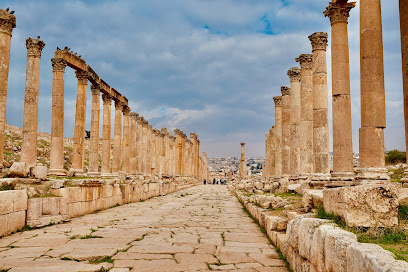
Umm Qays
Explore the ancient ruins of Umm Qays, a historical jewel in Jordan that offers stunning views and deep cultural insights.
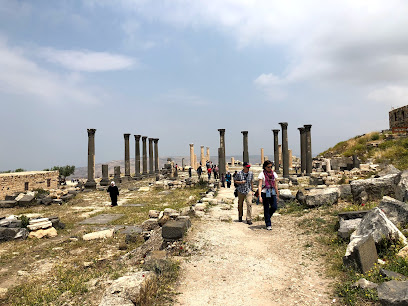
Roman Nymphaeum
Explore the Roman Nymphaeum in Amman, a stunning historical landmark showcasing the grandeur of ancient Roman architecture and culture.
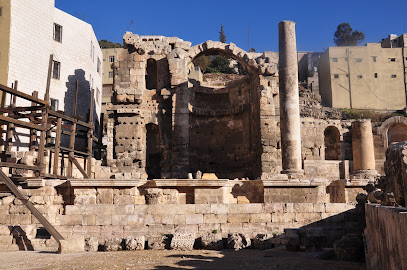
Qasr Shabeeb
Explore Qasr Shabeeb in Zarqa, Jordan - A historical castle museum offering rich cultural insights and stunning views of the region's heritage.
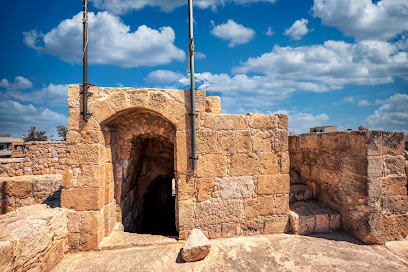
Byzantine Oil Press
Discover the Byzantine Oil Press in Amman, a captivating historical landmark showcasing ancient oil extraction methods and rich agricultural heritage.
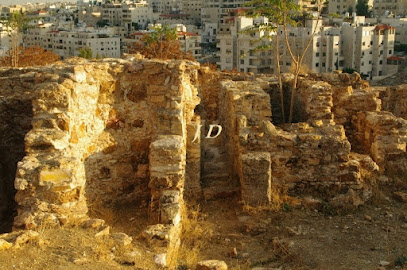
Qasr AlQastal
Discover the historical grandeur of Qasr AlQastal, a remarkable Umayyad palace in Amman, Jordan, showcasing stunning architecture and rich cultural heritage.
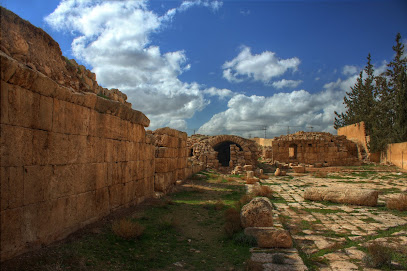
Byzantine Church
Discover the Byzantine Church in Amman, a historical landmark that showcases the rich heritage of Jordan's Byzantine era and its architectural marvels.
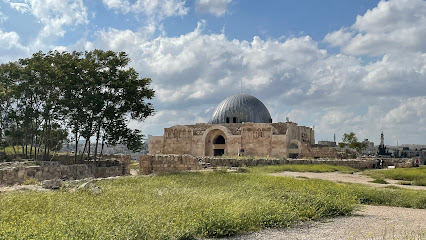
North Tetrapylon
Explore the stunning North Tetrapylon in Jerash, a remarkable symbol of Roman architecture and history in one of the world's best-preserved ancient cities.
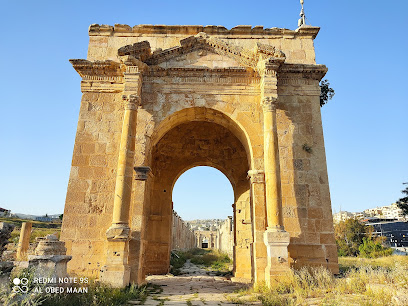
Viewpoint roman theatre
Explore the ancient Roman Theatre in Amman—an iconic landmark steeped in history and architectural beauty, offering breathtaking city views.
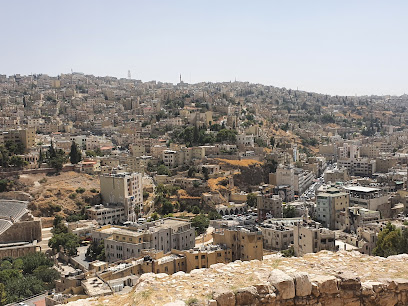
Roman Temple
Explore the historic Roman Temple in Amman, a stunning symbol of ancient architecture and Jordanian heritage waiting to be discovered.
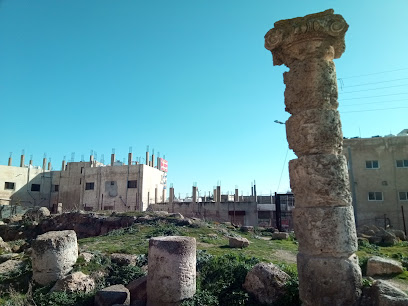
Jerash Ancient City Ruins
Discover the ancient marvel of Jerash, where Roman grandeur meets stunning landscapes in one of the best-preserved archaeological sites in Jordan.
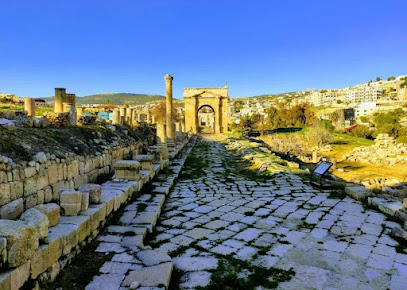
Roman Mausoleum
Explore the awe-inspiring Roman Mausoleum near Amman, a stunning historical landmark rich in culture and ancient architecture.
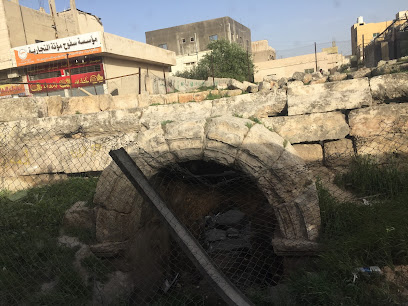
West Baths
Explore the West Baths in Jerash, a breathtaking glimpse into ancient Roman life and architecture amidst stunning historical ruins.
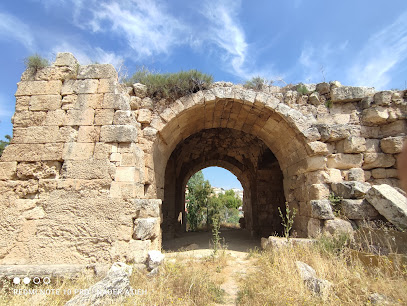
Propylaeum of the Sanctuary of Artemis
Explore the architectural marvel of the Propylaeum of the Sanctuary of Artemis in Jerash, a striking historical landmark steeped in ancient culture and history.
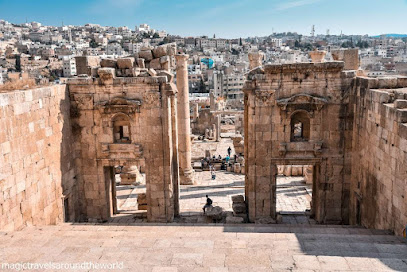
Ottoman Building
Explore the Ottoman Building in Jerash, a historical landmark rich with architectural beauty and deep cultural heritage.
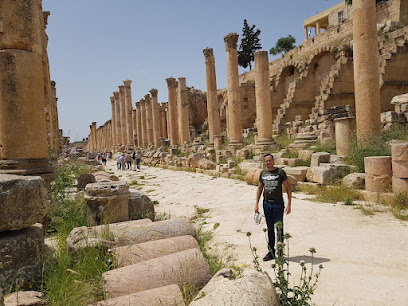
Unmissable attractions to see
Archaeological Site of Jerash
Explore the Archaeological Site of Jerash, a remarkable ancient city with stunning ruins, temples, and theaters that reflect Jordan's rich historical tapestry.
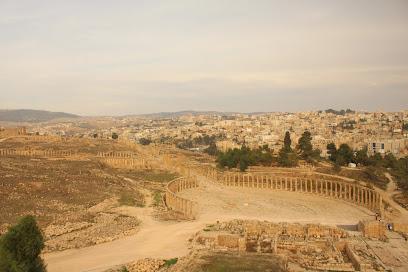
Ajloun Castle
Discover Ajloun Castle, a historic gem in Jordan, where history meets breathtaking landscapes and adventure awaits at every turn.
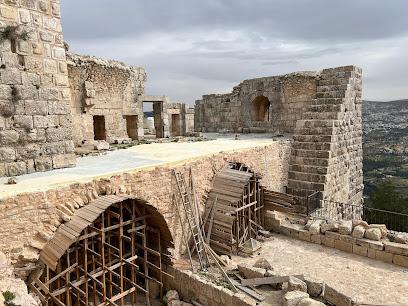
Oval Plaza
Explore the historic Oval Plaza in Jerash, a captivating blend of ancient Roman architecture and vibrant local culture, perfect for history enthusiasts and travelers alike.
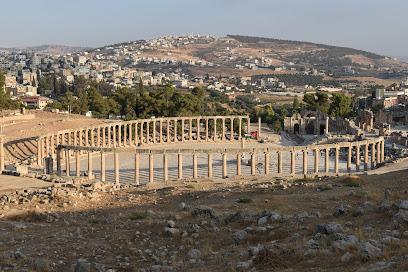
Temple of Artemis
Discover the grandeur of the Temple of Artemis in Jerash, Jordan, a stunning ancient site showcasing Roman architecture and rich historical significance.
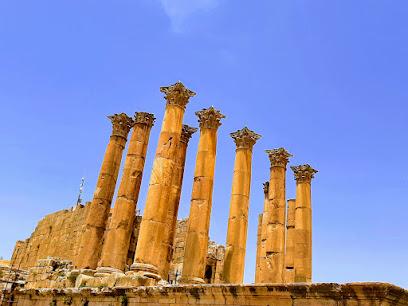
Jordan Archaeological Museum
Explore the ancient wonders of the Jordan Archaeological Museum in Amman, where history comes alive through remarkable artifacts and exhibitions.
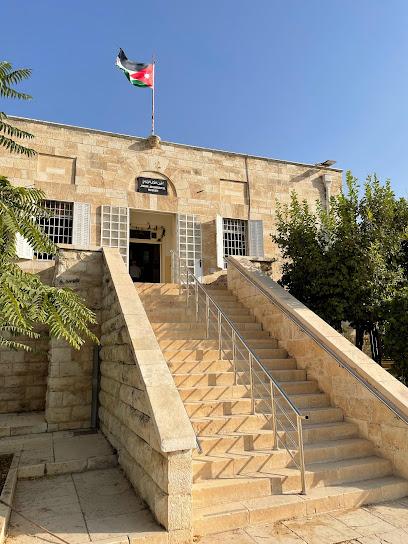
Temple of Zeus
Discover the majestic Temple of Zeus in Jerash, a historical landmark that showcases the grandeur of ancient Roman architecture and rich cultural heritage.
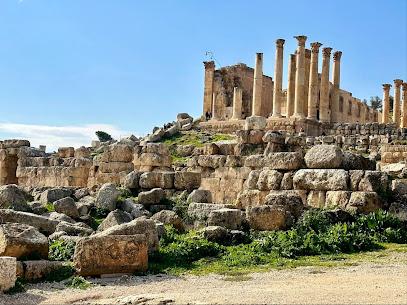
Jerash Archaeological Museum
Explore the treasures of the Jerash Archaeological Museum, where ancient Roman history comes alive through captivating artifacts and exhibits.
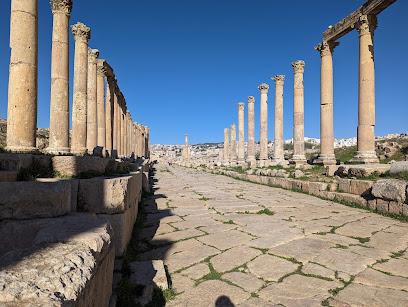
Umm el-Jimal
Explore the ancient ruins of Umm el-Jimal, a remarkable historical site in Jordan showcasing Roman architecture and rich cultural heritage.
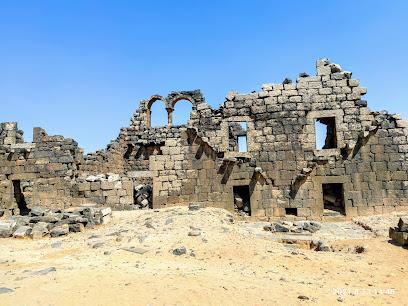
Odeon Theater
Discover the ancient elegance of Odeon Theater in Amman, a historical landmark showcasing Roman architecture and cultural heritage.
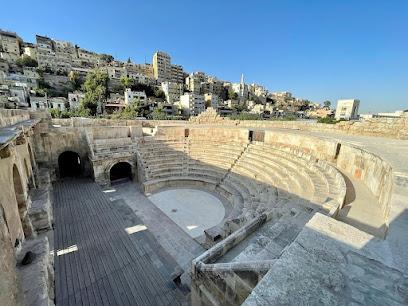
Jordan Folklore Museum
Explore the heart of Jordanian culture at the Jordan Folklore Museum, showcasing the country's rich history and vibrant traditions through engaging exhibits.
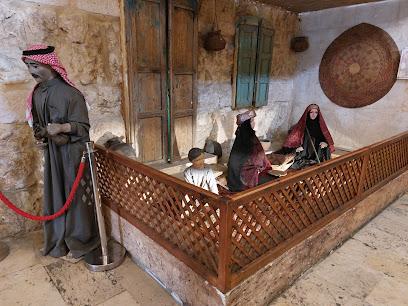
Jordanian Museum Of Popular Traditions
Explore the cultural treasures of Jordan at the Jordanian Museum of Popular Traditions, where history and artistry come alive.
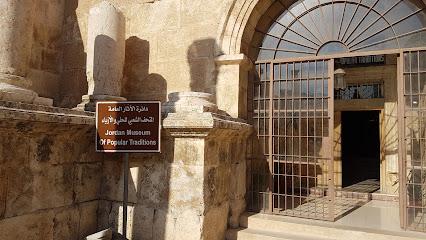
حديقة الحسين للعائلات
Explore the lush landscapes and family-friendly atmosphere of Al-Hussein Park, a serene retreat in Al-Mafraq, Jordan.
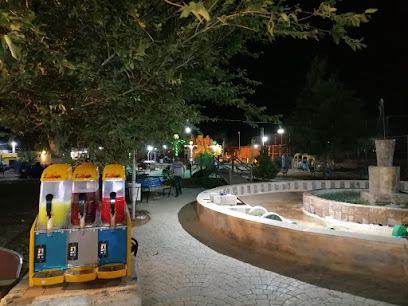
Jerash Ancient City Ruins
Explore the breathtaking Jerash Ancient City Ruins, a remarkable glimpse into the Roman Empire, where history and architecture come alive in northern Jordan.
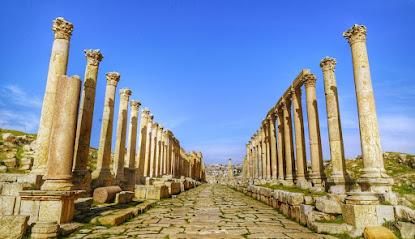
متنزه فرح المفرق
Explore the tranquil beauty of Al-Mafraq Park, a serene escape in the heart of Jordan, perfect for relaxation and family outings.
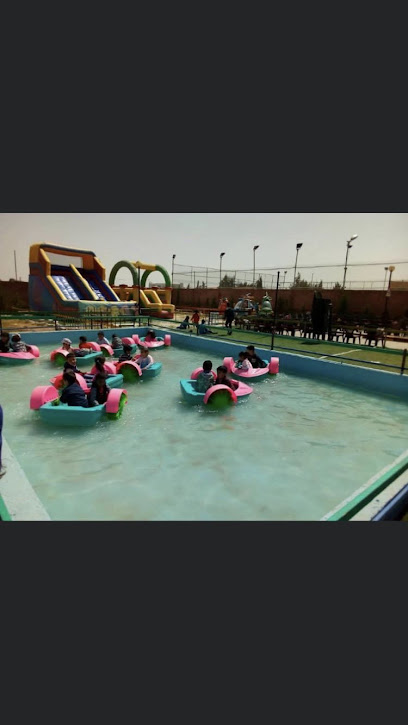
موقع الفدين الأثري
Explore the ancient beauty and rich history of موقع الفديين الأثري in Al-Mafraq, Jordan, a must-visit destination for culture and history enthusiasts.
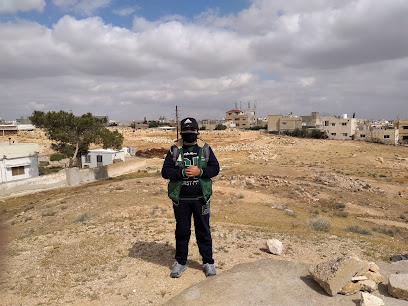
Essential places to dine
Grill House
Experience authentic Jordanian flavors at Grill House in Al-Mafraq, where every meal is a celebration of grilled excellence.
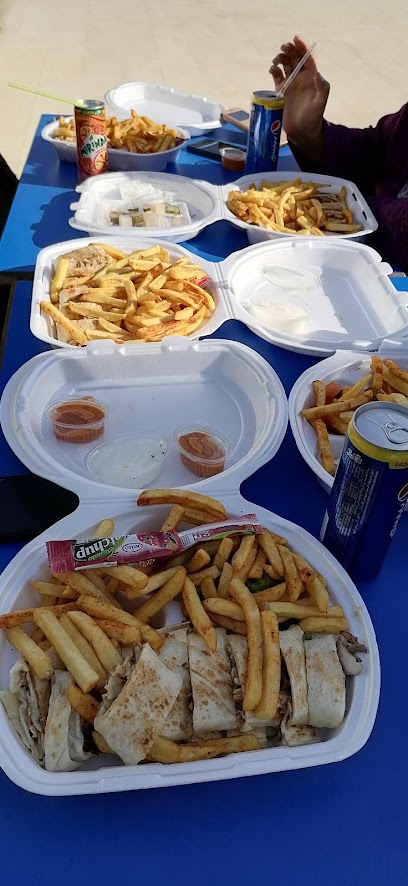
مطاعم قايد حضرموت
Experience authentic Yemeni cuisine at Qaed Hadramout Restaurant in Al-Mafraq – a feast for your senses!
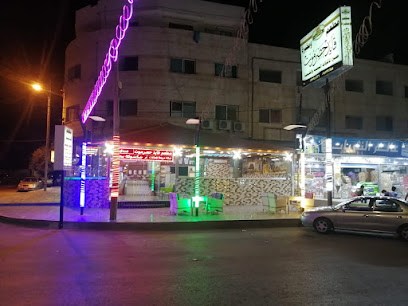
مطاعم و قاعات روابي المفرق
Experience the rich flavors of Jordan at مطاعم و قاعات روابي المفرق - where every meal tells a story.
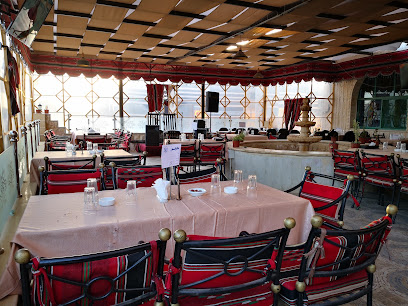
Bayaan Snack Restaurant
Experience authentic Jordanian cuisine at Bayaan Snack Restaurant in Al-Mafraq - where tradition meets flavor!
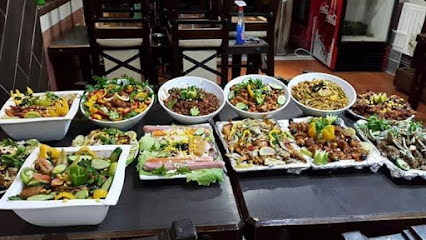
صاج واي
Explore the vibrant flavors of Jordan at صاج واي, where traditional meets modern dining in Al-Mafraq's culinary scene.
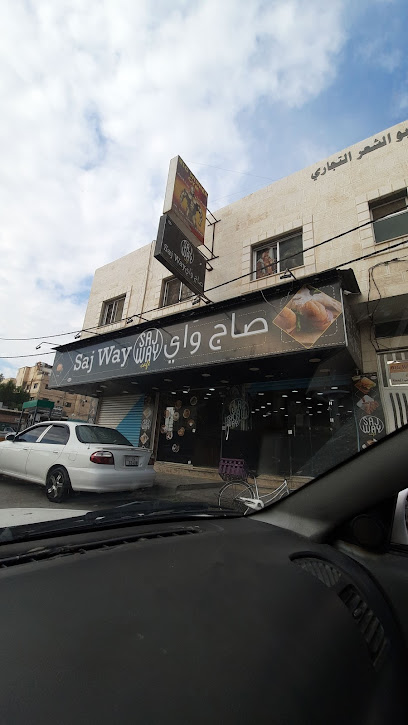
مطاعم جيت بوئتك المفرق
Experience authentic Jordanian cuisine at مطاعم جيت بوئتك المفرق - where flavor meets tradition in Al-Mafraq.
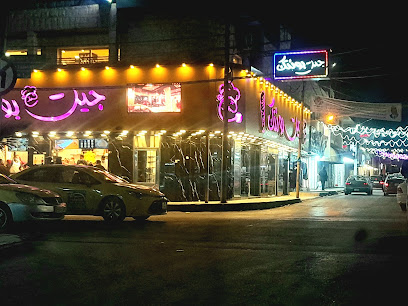
مطعم دلع كرشك فرع المفرق
Experience the authentic flavors of Jordan at مطعم دلع كرشك فرع المفرق – where tradition meets taste in every dish.
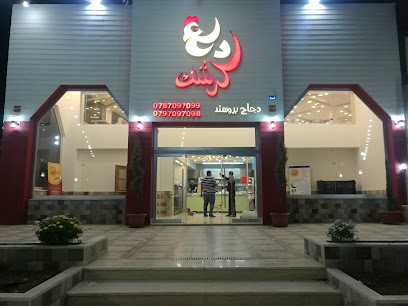
شاورما هنية
Experience authentic Jordanian shawarma at Shawarma Haniya in Al-Mafraq – where tradition meets taste in every bite.
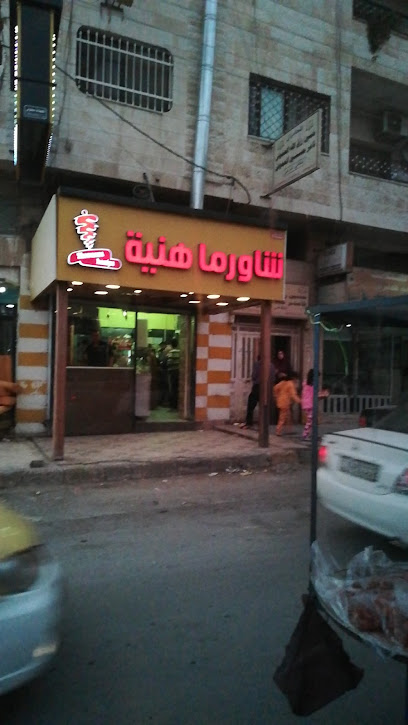
Restaurant Zorona
Discover authentic Jordanian cuisine at Restaurant Zorona in Al-Mafraq – where every meal is a flavorful journey into local culture.
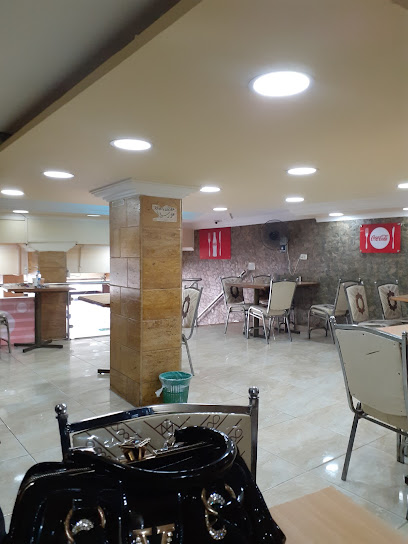
مطعم ، سناكات ، بيتزا ، المفرق City Cheese سيتي تشيز
Discover the flavors of Al-Mafraq at City Cheese - from traditional Arabic cuisine to delicious pizza options in a welcoming atmosphere.
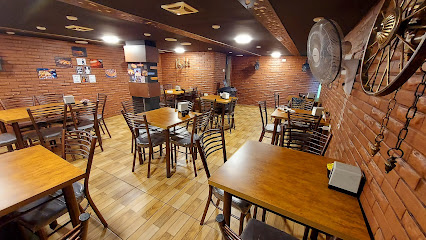
مطعم داوود
Experience authentic Jordanian cuisine at مطعم داوود in Al-Mafraq, where tradition meets flavor in every dish.
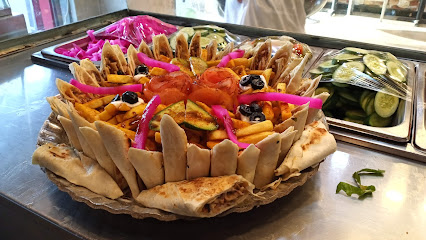
مطعم تعليله ولحم
Experience authentic Jordanian flavors at مطعم تعليله ولحم in Al-Mafraq – the perfect family-friendly dining destination.
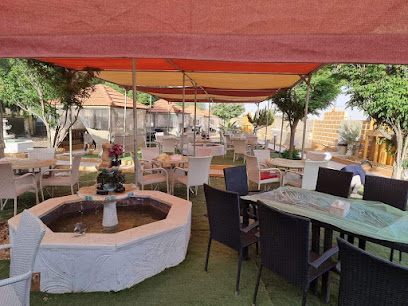
مطعم بوابة دمشق
Experience authentic Syrian cuisine at مطعم بوابة دمشق in Al-Mafraq - where every dish tells a story.
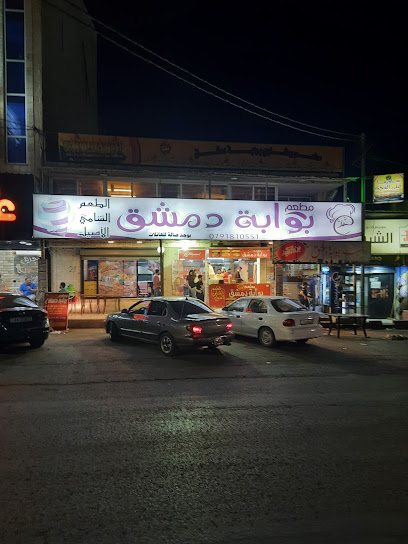
كوب عمار
Experience authentic Jordanian flavors at كوب عمار in Al-Mafraq - where every meal tells a story.
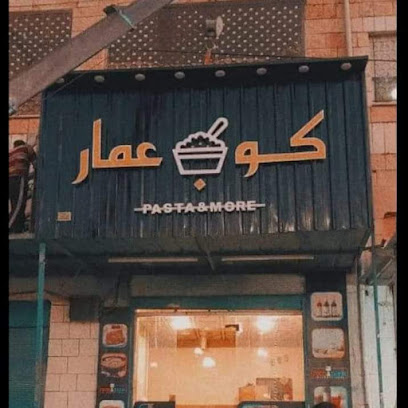
لبناني فروت - Lebnani Fruit
Experience authentic Lebanese flavors at Lebnani Fruit in Al-Mafraq—your gateway to traditional cuisine amidst a vibrant atmosphere.
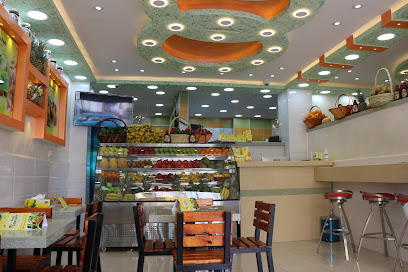
Markets, malls and hidden boutiques
العربي مول
Discover the essence of Jordanian cuisine at العربي مول, a vibrant grocery store in Al-Mafraq offering fresh produce and local delicacies.
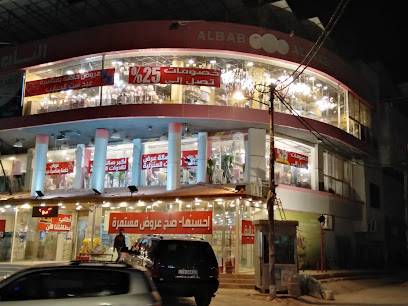
اسواق الجامع الفرع الثاني
Experience the bustling heart of Al-Mafraq at its vibrant hypermarket, where local flavors and diverse products await every visitor.
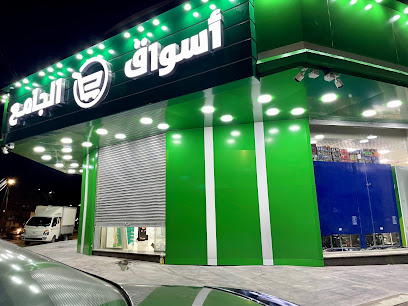
التيسير مول
Discover the vibrant التيسير مول in Al-Mafraq, a shopping paradise for fashion lovers with diverse clothing options and local charm.
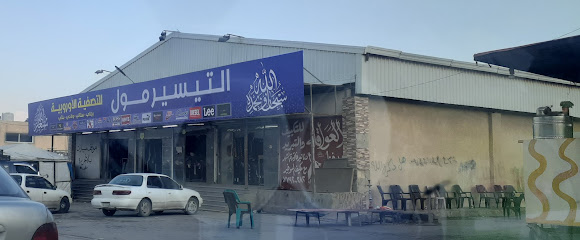
دكان المفرق
Discover Dukan Al-Mafraq, a vibrant shopping mall in Al-Mafraq, Jordan, blending local culture with modern retail and dining experiences.
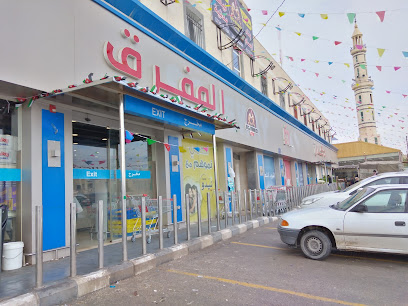
Goods Ghanam
Experience the vibrant flavors of Jordan at Goods Ghanam, a premier spice store in Al-Mafraq, perfect for culinary enthusiasts and souvenir seekers.
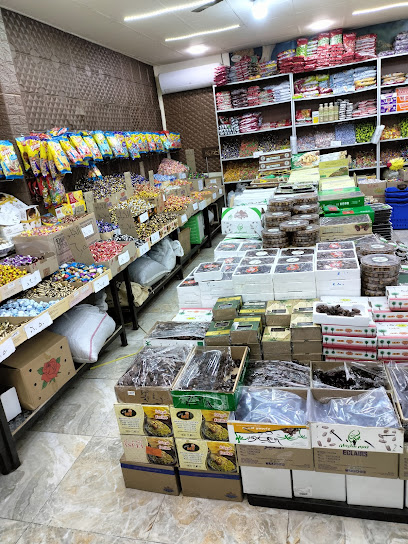
كركبة للتصفية المفرق/ karkabeh outlet
Explore Karkabeh Outlet in Al-Mafraq: Your ultimate shopping destination for trendy and traditional clothing in Jordan.
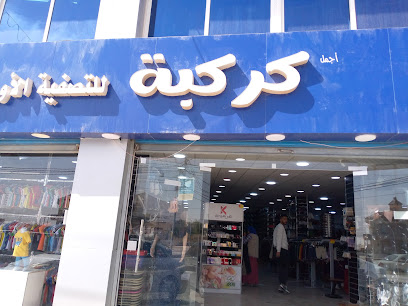
Riham Shoes
Explore Riham Shoes in Al-Mafraq for the finest selection of footwear and bags, showcasing local fashion trends and quality craftsmanship.
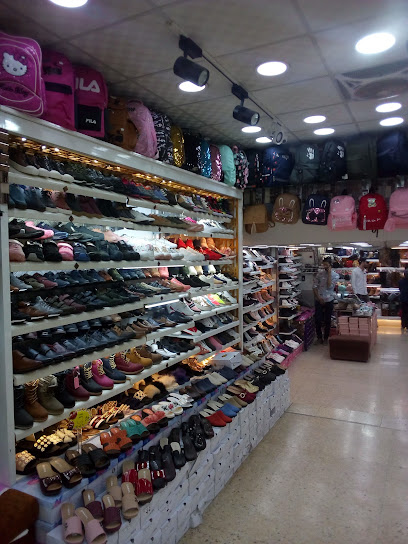
العائلة مول
Explore Family Mall in Al-Mafraq: A vibrant shopping destination with diverse stores, tasty dining, and family-friendly fun.
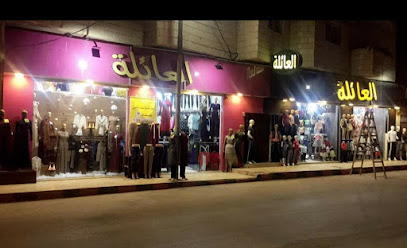
محمص وبن الهجان
Explore a world of flavors at Mahmas & Bin Alhajan, your go-to grocery store in Al-Mafraq for delicious nuts, candies, chocolates, and traditional sweets.
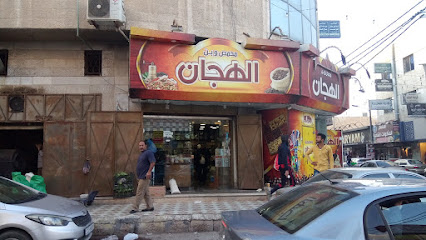
ملك البهارات
Discover the flavors of Jordan at ملك البهارات, a vibrant grocery store in Al-Mafraq offering an array of spices and local delicacies.
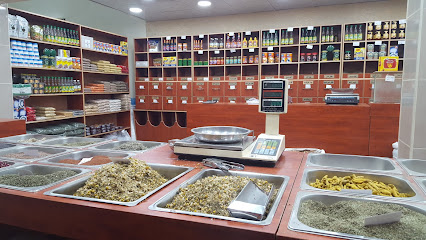
كشكول هوم للادوات المنزليه /المفرق
Discover unique home goods at كشكول هوم للادوات المنزليه in Al-Mafraq, where quality meets local craftsmanship for every household need.
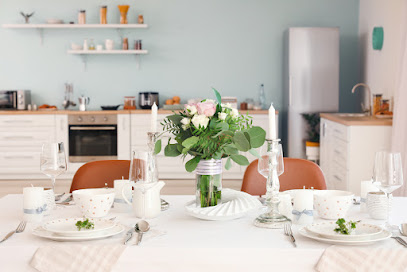
Golden granite supermarket
Explore local flavors and essential goods at Golden Granite Supermarket in Al-Mafraq, a vibrant hub for tourists seeking a taste of Jordan.
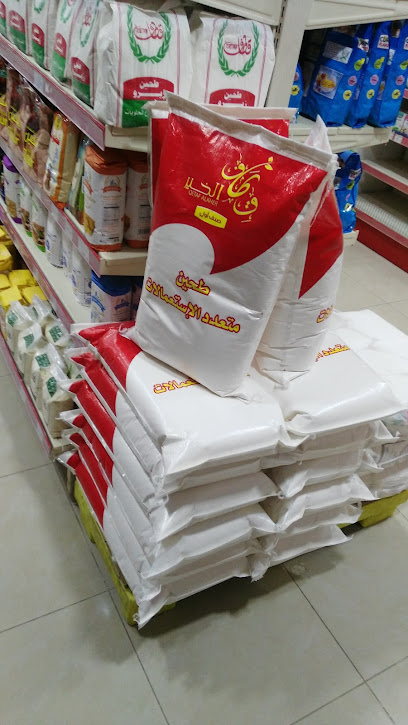
معرض عبدالرؤوف شديفات للاجهزه الكهربائيه
Discover the latest technology and electronics at عبدالرؤوف شديفات للاجهزه الكهربائيه in Al-Mafraq, your go-to destination for all things electronic.
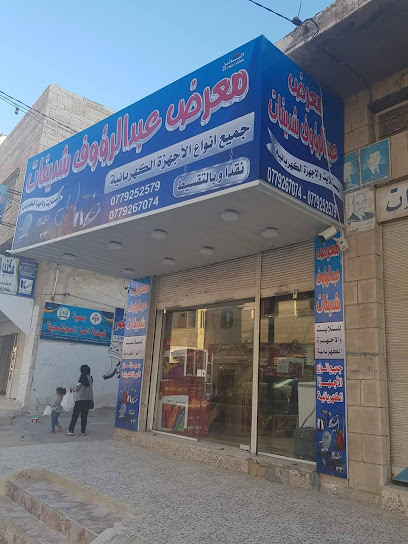
اسواق دوار جرش للخضار والفواكه
Discover the Al-Mafraq Vegetable and Fruit Market, where fresh flavors and local culture come together in a vibrant shopping experience.
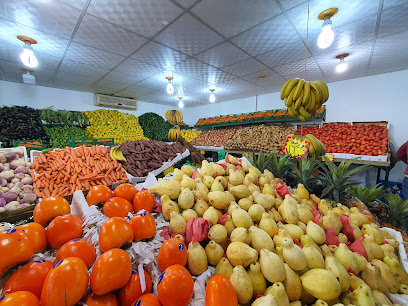
Smile Fashion - Mafraq
Explore the latest fashion trends at Smile Fashion in Mafraq, where quality meets affordability in a vibrant shopping experience.
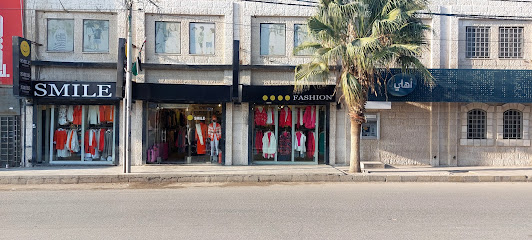
Essential bars & hidden hideouts
Grill House
Discover the culinary delights of Grill House in Al-Mafraq, where every meal is a celebration of flavor and hospitality.
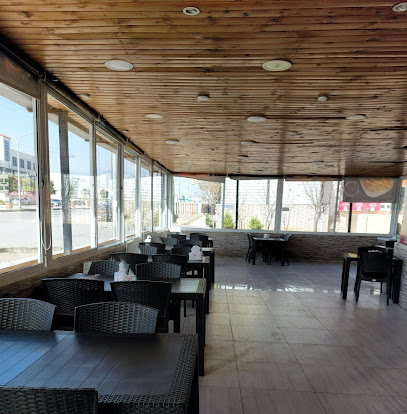
Bayaan Snack Restaurant
Discover the authentic tastes of Jordan at Bayaan Snack Restaurant, offering a delightful culinary experience in Al-Mafraq.
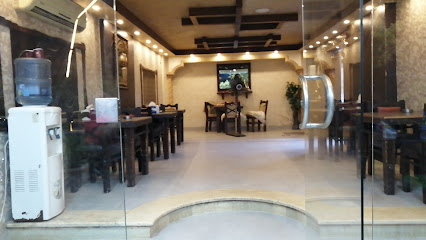
مطعم ، سناكات ، بيتزا ، المفرق City Cheese سيتي تشيز
Discover the flavors of Al-Mafraq at City Cheese, where traditional Middle Eastern dishes meet fast-food favorites in a welcoming atmosphere.
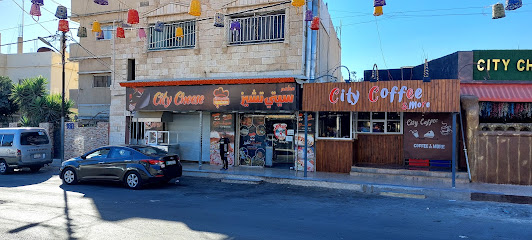
Rihani liquor store ريحاني للمشروبات الروحية (ابو عقاب)
Experience the vibrant nightlife at Rihani Liquor Store in Zarqa, where a diverse selection of spirits meets a welcoming atmosphere.
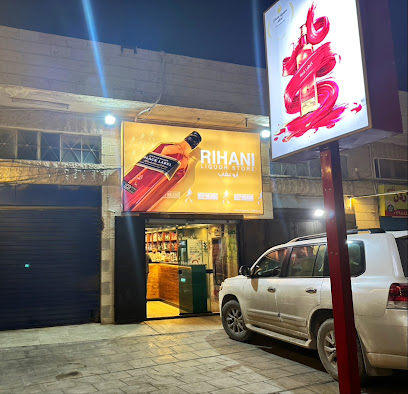
قاعات الشبيلي
Experience unforgettable moments at قاعات الشبيلي, the premier banquet hall in Al-Mafraq, perfect for any special occasion with luxurious amenities.
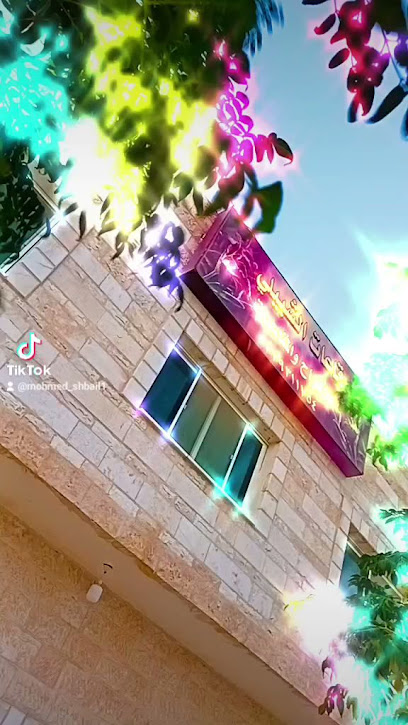
Black and White Liqour Store
Discover the vibrant nightlife at Black and White Liquor Store in Al-Husun - a perfect blend of great drinks and lively ambiance.

مهاوي للعصائر ( الاصلي )
Discover the vibrant flavors of fresh juices at مهاوي للعصائر in Al-Mafraq, where every drink tells a story of freshness and delight.
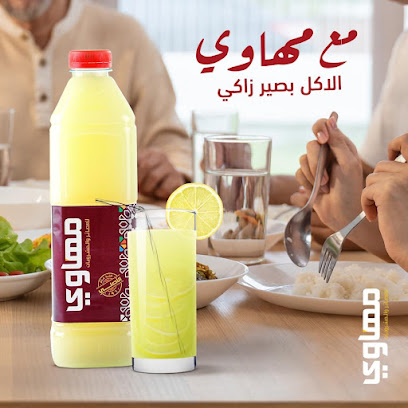
لبناني الشمال فرع المفرق
Indulge in the freshest juices at Lebanese North Juice Shop in Al-Mafraq, where vibrant flavors meet local hospitality.
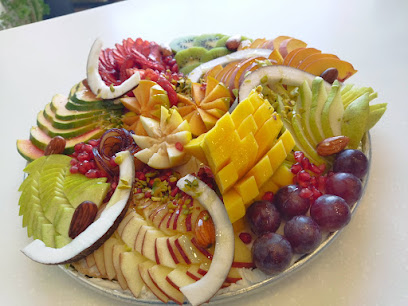
ملحمة اليوسف
Savor authentic Jordanian cuisine at ملحمة اليوسف in Al-Mafraq, where every dish tells a story of tradition and flavor.
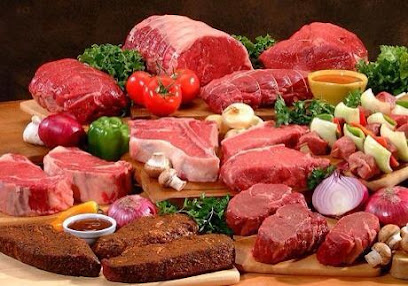
سوبر ماركت وبار الشرق
Explore the vibrant nightlife at Supermarket and Bar Al Sharq in Al-Mafraq, where cocktails meet local charm for an unforgettable experience.
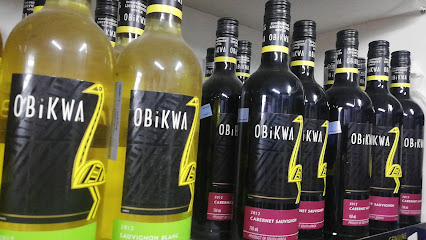
مدرسه حي فدين
Experience the vibrant local culture at مدرسة حي فدين, a lively bar in Al-Mafraq offering delicious drinks and a welcoming atmosphere.

Liquor store you land
Experience the vibrant nightlife of Al-Husun at Liquor Store You Land, your go-to bar for a great selection of beverages and a lively atmosphere.
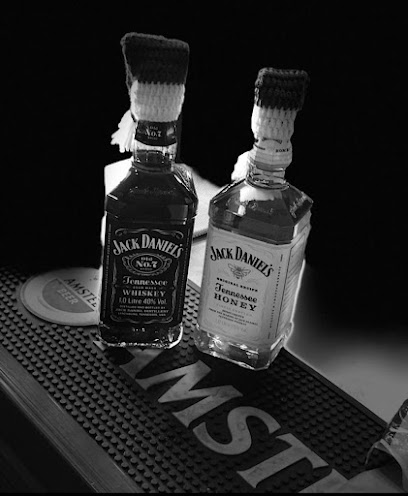
النخلة سنتر
Discover النخلة سنتر, a cozy bar tabac in Zaatari Village, perfect for relaxation, socializing, and enjoying local culture.
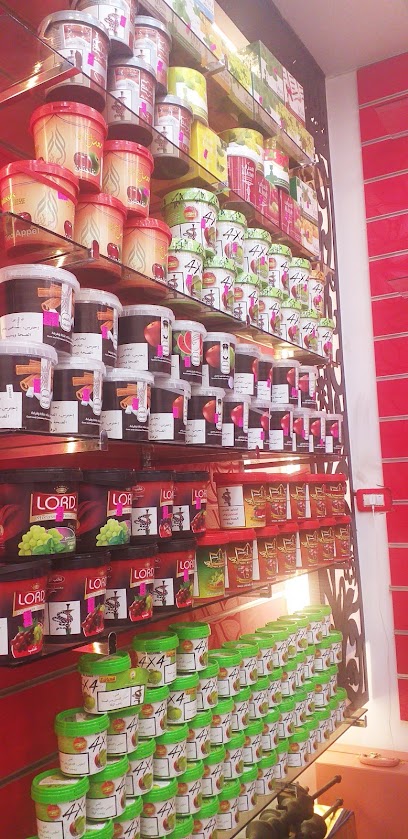
الصين
Discover the vibrant nightlife at China Bar in Al-Hamra, where local flavors meet a lively atmosphere for an unforgettable experience.

Travel experiences inspired by this city
Explore more travel diariesLocal Phrases
-
- HelloMarhaba
[Mar-ha-ba] - GoodbyeMa'a as-salama
[Ma-a as-sa-la-ma] - YesNa'am
[Na-am] - NoLa
[La] - Please/You're welcomeMin fadlik
[Min fad-lik] - Thank youShukran
[Shuk-ran] - Excuse me/SorryAfwan
[Af-wan] - How are you?Kif halak?
[Kif ha-lak] - Fine. And you?Mni7. O inta?
[Mn-i7. O in-ta] - Do you speak English?Bititkalam inglizi?
[Bi-tit-ka-lam in-gli-zi] - I don't understandMa fahimt
[Ma fa-himt]
- HelloMarhaba
-
- I'd like to see the menu, pleaseBiddi ashuf il menu, min fadlik
[Bid-di a-shuf il me-nu, min fad-lik] - I don't eat meatAna ma bakul la7m
[An-a ma ba-kul lah-m] - Cheers!Saha!
[Sa-ha] - I would like to pay, pleaseBiddi a-salli, min fadlik
[Bid-di a-sal-li, min fad-lik]
- I'd like to see the menu, pleaseBiddi ashuf il menu, min fadlik
-
- Help!Musa3ada!
[Mu-sa-3a-da] - Go away!Imshi!
[Im-shi] - Call the Police!Itell il boulis!
[Itell il bou-lis] - Call a doctor!Itell tabib!
[Itell ta-bib] - I'm lostGhareb
[Gha-reb] - I'm illAna mareed
[An-a ma-reed]
- Help!Musa3ada!
-
- I'd like to buy...Biddi ashtri...
[Bid-di ash-tri] - I'm just lookingAna bafham
[An-a ba-fham] - How much is it?Kam hada?
[Kam ha-da] - That's too expensiveHada ghali kteer
[Ha-da gha-li ktee-er] - Can you lower the price?Bitit7asaf 3al siir?
[Bi-ti-t7a-saf 3al siir]
- I'd like to buy...Biddi ashtri...
-
- What time is it?Kam il waqt?
[Kam il waqt] - It's one o'clockHada sa3a wahda
[Ha-da sa-3a wah-da] - Half past (10)Nisf 3ashra
[Nisf 3a-shra] - MorningSabah
[Sa-bah] - AfternoonDuhur
[Du-hur] - EveningMasa
[Ma-sa] - YesterdayAms
[Ams] - TodayLyom
[L-yom] - TomorrowGhadan
[Gha-dan] - 1Wahid
[Wa-hid] - 2Itnain
[It-nain] - 3Tleta
[Tle-ta] - 4Arba3a
[Ar-ba-3a] - 5Khamsa
[Kham-sa] - 6Sitta
[Sit-ta] - 7Saba3a
[Sa-ba-3a] - 8Thamania
[Tha-ma-ni-a] - 9Tis3a
[Tis-3a] - 10Ashra
[Ash-ra]
- What time is it?Kam il waqt?
-
- Where's a/the...?Wayn il...
[Wayn il] - What's the address?Shu il address?
[Shu il ad-dress] - Can you show me (on the map)?Bitirini (3ala il khareeta)?
[Bi-ti-ri-ni (3a-la il kha-ree-ta)] - When's the next (bus)?Izay il 7areek il talet?
[Izay il 7a-reek il ta-let] - A ticket (to ....)Talat (ila ....)
[Ta-lat (il-la)]
- Where's a/the...?Wayn il...
History of Mafraq
-
Mafraq, historically known as 'Qasr Al-Mushatta,' boasts a rich tapestry of ancient civilizations dating back to the early Bronze Age. Archaeological digs have unearthed artifacts that indicate the region was a crossroads for ancient nomadic tribes and settled communities. Its strategic location on the trade routes connected it to major cities like Petra and Jerash.
-
During the Roman era, Mafraq became an important military outpost. The Romans established the city as part of the Provincia Arabia, and it served as a crucial hub for Roman legions. The ruins of Qasr Al-Mushatta, a Roman palace, stand as a testament to this period, showcasing intricate stone carvings and elaborate architectural designs.
-
In the Byzantine period, Mafraq continued to flourish under Christian rule. Numerous churches and monasteries were built, reflecting the city's growing religious significance. The remnants of Byzantine-era mosaics and religious artifacts can still be found in the area, providing insight into the spiritual life of its past inhabitants.
-
During the 7th century, the Islamic conquest brought significant changes to Mafraq. The city came under the rule of the Rashidun, Umayyad, and Abbasid Caliphates. The Umayyad Qasr Al-Mshatta palace, with its grandiose architecture and ornate decorations, exemplifies the artistic and cultural renaissance that occurred under Islamic rule.
-
Under Ottoman rule, Mafraq evolved into a vital administrative center. The Ottomans expanded the city's infrastructure, building roads and fortifications. The arrival of the Hejaz Railway in the early 20th century marked a significant milestone, connecting Mafraq to major cities like Damascus and Medina, and spurring economic growth and modernization.
-
In the 20th century, Mafraq played a pivotal role during the Great Arab Revolt against Ottoman rule. The city became a base for Arab forces and witnessed several key battles. Post-independence, Mafraq emerged as a vital military and logistics hub for Jordan, with the establishment of the King Hussein Air Base and other strategic installations.
-
Today, Mafraq is a melting pot of cultures, reflecting its historical legacy as a crossroads of civilizations. The city hosts a diverse population, including Bedouin tribes, Circassians, and Palestinians. Mafraq's cultural heritage is celebrated through various festivals, traditional crafts, and culinary delights, offering a glimpse into the rich and varied tapestry of its history.
Mafraq Essentials
-
Mafraq is located in northern Jordan and is accessible via several routes. The nearest international airport is Queen Alia International Airport in Amman, which is approximately 80 kilometers away. From Amman, you can take a taxi, rent a car, or use public buses to reach Mafraq. The journey by road typically takes around 1.5 to 2 hours. There are also minibus services (known as 'servees') that operate between Amman and Mafraq.
-
Within Mafraq, taxis are the most common form of transportation and are relatively inexpensive. Public buses and minibuses (servees) are also available and connect various parts of the city and nearby villages. Car rentals are an option for those who prefer to explore at their own pace. Walking is feasible for short distances, especially in the city center.
-
The official currency in Jordan is the Jordanian Dinar (JOD). Credit cards are accepted in most hotels, restaurants, and larger shops, but it is advisable to carry cash, especially in smaller establishments and local markets. ATMs are widely available in Mafraq, making it easy to withdraw cash as needed.
-
Mafraq is generally safe for tourists, but standard precautions should be taken. Avoid walking alone at night in unfamiliar areas and keep an eye on your belongings in crowded places. There are no specific high-crime areas targeting tourists; however, it is always best to stay vigilant and aware of your surroundings.
-
In case of emergency, dial 911 for immediate assistance. Mafraq has local police stations and medical facilities available. It is recommended to have travel insurance that covers medical emergencies. Pharmacies are available in the town for minor health issues where you can purchase over-the-counter medications.
-
Fashion: Do dress modestly, especially when visiting religious sites. Avoid wearing revealing clothing. Religion: Do respect local customs and traditions. Always cover your head and remove shoes when entering mosques. Public Transport: Do be respectful and give up your seat to elderly passengers. Don’t eat or drink on public transport. Greetings: Do greet people with a handshake, but be mindful that some may prefer not to shake hands with the opposite gender. Eating & Drinking: Do try local delicacies and accept food offerings graciously. Don’t refuse hospitality, as it is considered impolite.
-
To experience Mafraq like a local, visit the local markets where you can buy fresh produce and traditional Jordanian goods. Engage with locals, as they are often friendly and willing to share stories about the city's history and culture. Don’t miss visiting the ancient ruins and historical sites that are scattered throughout the region. For a unique experience, attend a traditional Bedouin event or festival to immerse yourself in the local culture.
Trending Landmark in Mafraq
Nearby Cities to Mafraq
-
Things To Do in Jerash
-
Things To Do in Irbid
-
Things To Do in Amman
-
Things To Do in Salt
-
Things To Do in Umm Qais
-
Things To Do in Beit She'an
-
Things To Do in Madaba
-
Things To Do in Azraq
-
Things To Do in Tiberias
-
Things To Do in Nazareth
-
Things To Do in Safed
-
Things To Do in Dead Sea
-
Things To Do in Jerusalem
-
Things To Do in Bethlehem
-
Things To Do in Zikhron Ya'akov











